INDEPENDENCE DAY: RESURGENCE
Independence Day Reloaded...
2016 may be among the worst years in human history.
We as a nation have chosen as potential Presidents a pair of opportunists who are egocentric, power-mad, shady characters, neither of whom are worthy to be President of the United States.
In terms of film, by my count we have around 26 sequels, 6 comic book-based films, 6 remakes, and 4 video game-based films. That isn't even mentioning the wealth of talent that has died (Rickman, Prince, Bowie, Yelchin among others). It's enough to make even the most casual filmgoer despair as to how the industry is sinking. Joining that august body of this, the anti-1939, is
Independence Day: Resurgence, (which I lovingly call
Independence Day Reloaded) a sequel to
Independence Day, a film that is 20 years old (a point that is brought up often through
ID:R) and which a good chunk of the audience may not even remember.
As a side note, I'd like to point out that 20 years ago, Hillary Clinton was in the White House as First Lady. Two decades later, we have Hillary Clinton trying to get back into the White House, this time as President. Curiously, in
ID4 the First Lady was killed off, while in
ID:R we have a female President. Draw whatever conclusions you like on this bit of casting/story and how they reflect the times the films were made.
ID:R has some great visuals.
OK, I'm pretty much out of positive things to say about
ID:R.
It isn't the nightmare that has been reported. However, in just about every respect
ID:R not only fails to live up to the good time
ID4 was, but it spends so much of its time on characters we don't care about or even get to know. By the time we get to the massive, massive battle in and out of space, I was coming close to rooting for the aliens.
It's been twenty years since the events of
Independence Day. Former President Thomas Whitmore (Bill Pullman) is essentially a broken man: bearded, bedraggled, a bit unstable, and drawing curious symbols that he cannot comprehend. Current President Hillary Rodham Clinton (Sela Ward)* congratulates the world for uniting to form the Earth Space Defense (ESD) (though in reality it appears to be a joint U.S.-China mission...the fact that China is now a massive market for American films I'm sure being irrelevant to such details). The ESD is based on the Moon, where we meet hotshot pilot Jake Morrison (Liam Hemsworth), the fiancée of President Whitmore's daughter, Patricia (Maika Monroe). She is a former pilot herself but is now working for President Hillary Clinton, and is wary when her friend Dylan Hiller (Jesse T. Usher) is going to the Moon. There is bad blood between former friends Jake and Dylan (son of Steven Hiller, the role Will Smith played in the original, who turned down the chance to appear in the film as has been killed off for this film).
No love is lost between Dylan and Jake, and the Chinese ESD commander on the Moon isn't fond of Jake either. Said commander IS fond of his niece, Rain Lao (Angelababy...yes, that is this Chinese star's stage name), a competent Chinese pilot who has gone to the Moon. Also fond of Rain is Charlie (Travis Tope), Jake's best friend and Comic Relief One.
Back on Earth, David Levinson (Jeff Goldblum) is still investigating alien matters, only this time followed about by nebbish accountant Floyd Rosenberg (Nicolas Wright), Comic Relief Two. They go to an African warlord who has fought aliens and has bitterness against them for killing his brothers (which wasn't part of the original
ID4, but why quibble).
A strange sphere appears near the Moon, and over Levinson's objections President Hillary Clinton orders it shot down. Bad move, for when Jake goes on yet another unauthorized visit to Earth and zips Levinson, Rosenberg, African Warlord (I don't think his name is relevant to the plot) and Levinson's love interest (Charlotte Gainsbourg, but her name is equally irrelevant) to the Moon, they find that Levinson was right. They also find another, larger ship about to attack.
As a side note, Earth Space Defense must be pretty inept to have not noticed this massive, massive alien ship coming close to the Moon. In fairness, I think they borrowed the cloaking device from the Klingons.
Well, now it's on to the massive series of attacks on Earth, though Jake & Company manage to recover the sphere and bring it to Earth. The returning aliens want to drill into the Earth's molten core to refuel and leave the planet devoid of life. The ensuing attacks kill off President Hillary Clinton and apparently all the Cabinet and Congress, for there is no one left in the Presidential line of succession (I would have left the Secretary of Agriculture around, if only to have him/her serve as Comic Relief Three). The Presidency then falls to General Adams (William Fichtner), though how exactly HE was found to be the successor to the late President Hillary Clinton the film does not explain (something we'll see quite a bit in
ID:R).
It neither explains the return of Dr. Brakish Okum (Brent Spiner), who was apparently killed off in
ID4. We discover that, despite all evidence to the contrary, Dr. Okum had NOT been killed off. He had merely been in a 20-year coma and revived just in the nick of time. He's up and at 'em, coming up with wacky ways to try and pry the sphere open. Eventually, the sphere is opened by Rosenberg, who dared to touch it. The sphere is the last of its kind (taking a page from
Doctor Who, where you almost always have an alien be 'the last of their kind', starting with The Doctor himself...until that detail needs changing for plot contrivances), the only species to have fought against the aliens and with knowledge of its weaknesses. It has rescued other civilizations to an exile planet, and was going to do the same to Earth before the Earth attacked it. That unfortunate incident left it not just vulnerable, but in danger of having its identity revealed to the Alien Queen, which is attacking the Earth.
Somewhere in all this Julius Levinson (Judd Hirsch), apparently doing a book tour of retirement homes, gets swept into land on his fishing boat. He is rescued by four orphans of various ages (whose names I'm not sure were even mentioned in
ID:R) and he in turn rescues a busload of children abandoned by their driver who were coming back from camp (I know we never learned THEIR names because that was unnecessary). Jake, Rain, Charlie, and Dylan are trapped inside the mother-ship, but find a way to attack from within, taking a few of the alien ships with them.
A plan is hatched to lure the Alien Queen, but that thing is HUGE! People are killed, Julius manages to drive a school bus into Area 51, and it takes the efforts of so many to destroy the Queen. The sphere, joyful at this victory, offers a chance for a sequel...I mean, a chance for humanity to lead the resistance against the evil aliens and meet with the other species in the exile planet.
One of my
Golden Rules of Filmmaking is
Never End A Film By Suggesting There Will Be a Sequel. There are two reasons for this Rule.
The first reason is that it suggests a great deal of arrogance on the filmmaker's part: the notion that the film is so good that people will demand to see more merry adventures of these characters. At the very least, it suggests a high level of greed on said filmmaker's part, a sense that they just want to take more money from their audience by baiting them with more stories. The second reason is that if there is there is no sequel, the film ends on a dubious note. You're left with plots that are never resolved, characters in limbo, and a sense that you didn't see a film so much as you did a long, long trailer for something that will never come.
Independence Day: Resurgent offers us the distressing suggestion that writer/director Roland Emmerich (along with cowriter/producer Dean Devlin) that this film isn't just a sequel, but is the beginning of a whole
FRANCHISE. The prospect is downright disheartening, as my friend Fidel Gomez, Jr. observed, as if it were advertising that
ID:R is a pilot for a television series. Floyd Rosenberg goes from nebbish to having 'a heart of a warrior' as the African warlord observes. Julius offers to the four orphans that they stay with him for a while. Rain agrees to dinner with Charlie. In the most blatant declaration of the sequel insanity of
ID:R, the sphere is offering to take our heroes/heroines to the Forbidden Planet.
So much in
ID:R is left unexplained or muddled. At the top of the list is Dr. Okum. First, my memory of
ID4 had him clearly dead. Now, we're told he was just in a coma for 20 years. I can cut all five screenwriters of
ID:R some slack in this department (though again, having five official screenwriters and four people credited with the story violates another of my
Golden Rules of Filmmaking: A Film Should Have a Maximum of Three Screenwriters, what I call my
Casablanca Rule). However, it seems a wild stretch to imagine after twenty years of being in a catatonic state he'd have all this energy and pep.
Add to that the very curious relationship between him and fellow scientist Dr. Isaacs (John Storey). As the aliens are attacking the isolation chamber Okum, Isaacs, and the Sphere are in, we see Okum and Isaacs quickly hold each other's hands. When Isaacs is dying (uttering the laughable line, "They got me", which suggests he's going into Bugs Bunny's dialogue after encountering Elmer Fudd), Okum is highly upset. It isn't clear whether Okum is gay and Isaacs was or was not his lover (the fact that Isaacs tells him he took up knitting and made him a sweater or scarf doesn't help discern the exact nature of their relationship).
It doesn't matter one way or the other whether Okum is gay, but
ID:R doesn't clarify whether Okum's grief is caused by romance or deep affection (Eros vs. Philos love). Again and again the film introduces things that it drops just as quickly, or provides something that doesn't pay off.
Vivica Fox returns, and in the ensuing two decades has gone from an exotic dancer to a doctor. I've nothing against strippers going into the medical profession, but one wonders if this was a way to shoehorn her into the movie. However, she is killed off in the most laughable way (saving a baby and mother by putting them aboard a helicopter before the building collapses in on her). Her son Dylan watches his mother die, but I didn't feel anything because we never saw them together. In short, she might just as well been one of the billions and billions of people killed, the nameless, faceless hoi polloi that bites it because pretty/dumb people do dumb things.
That bitter hatred between Dylan and Jake? Well, after one punch we get the invasion and that uninteresting subplot disappears, to where you wonder why it was introduced to begin with. What exactly Floyd's role in
ID:R was is left a bit vague (I think something to do with financing for Levison's research).
Perhaps the best example of
ID:R's total ineptness and clumsiness comes in the form of the four orphans...and their very creepy-looking dog. Seriously, when we first see them and their dog, the dog's eyes were bulging so much I thought the girl holding him was literally strangling the poor pooch. We meet them about two-thirds of the way in, and the film never makes a case as to why we should care about them. We don't know who they are. I don't even think we learned their names, let alone what their personalities are, what the family dynamic is, how they happened to have survived while their grandparents didn't (if memory serves correct they were headed 'home' to see if their parents were alive). I don't fault the child actors, who were given a thankless job and did what they could. However, I won't expect them at any Cons, merely because no one at them would have any idea who they were.
IF we had been introduced to them before the attacks (the method
ID4 used to much better effect) THEN we would have had a vested interest. However, what made THEM so special? At least in
ID4, they took their time to introduce us to the characters before blowing the White House up. They also gave us competent actors.
Of course, we couldn't get to these rugrats because so much time had to be invested with
Independence Day: The Next Generation, and what a poor lot we got. Liam Hemsworth is a beautiful-looking man (just like his brother Chris) but he also shows a total inability to express any emotion (just like his brother Chris). To be fair, at least Liam is able to lose his Australian accent (a trick Thor has yet to manage). However, whether he is describing his sadness at the loss of his parents in the original attack or his love for Patricia, Hemsworth is flat, unable to convey any range. He says the words, but never makes one believe he actually believes them, let alone is speaking as the character.
It's enough to convince me that the Hemsworth Brothers are the anti-Barrymores: John, Lionel, and Ethel being the Royal Family of Broadway, while Chris, Liam, and perhaps Luke being a trio of gorgeous men who've succeeded based on their looks and nothing more (though I haven't seen Luke act, him having stayed in Australia).
Faring no better is Usher as Dylan, who is suppose to be living somewhat in the shadow of his late father but who doesn't display anything that shows courage, leadership, or interest. We get a couple of bits where he looks at Will Smith's picture, but that's about it. Somehow, what's suppose to be his tagline, "Get ready for a close encounter, bitch" doesn't have the ring of "Welcome to Earth". Smith has charisma, Usher doesn't.
It's a great pity that Sela Ward, one of our most beautiful, underrated, and underused actresses, has little to actually do as President Hillary Clinton. It's almost embarrassing to see her at the "Celebration" (the 20th Anniversary of Earth's Victory), for she serves less as President and more as game show hostess. When Pullman (shuffling along until he shaves, which apparently give him a sense of power and grandeur again) pops up at the Celebration (begging the question, why wouldn't the former President have been there to begin with), President Hillary Clinton essentially says, "Here he is: President Thomas Whitmore!", complete with sweeping hand gestures pointing him out as if he were a new car behind Curtain Number 3.

Did we really need TWO comic relief characters (both of whom turn out to be slightly annoying)? I'm not castigating Wright or Tope, who I think did what they could with vaguely defined characters. However, TWO comic relief characters? How many stories could we slam into this film?
It isn't as if
Independence Day: Resurgence doesn't have some good things. The pre-credit opening is visually impressive. However, that's about it.
We get characters we're never introduced to (a ship that has managed to stay afloat in the waters near the hole the aliens are drilling is populate with men who I figure have names but who you have to guess what nationality they are based on their accents, the four orphans that wander into this film). Some characters that we are introduced to we end up not caring about (hard to make a warlord into a heroic figure, at least outside the confines of an ISIS Productions release). We get endless amounts of time with characters we don't care about (when Jake, Dylan, Charlie, and Rain were inside the spaceship, I hoped the aliens would do a bit of anal probing) and plots that never get resolved (Dylan, who is angry with Jake because the latter nearly got the former killed in a test flight, pretty much forgets all about it by the end). We get characters who are almost too silly for words (Charlie and Floyd, who should team up to do a double-act of quips and quarks) and patronizing to the point of insulting (Angelababy's sole reason for being is to get her Chinese fans to flock to a film made more for the Commie market than the capitalist one, because she essentially plays no part in any of this).
Muddled, boring, clumsy, with no vested interest in anyone or anything,
Independence Day: Resurgence might have worked as parody. When the Alien Queen emerges to be the size of two Godzillas yet can be outrun by a school bus, we know that the movie is less interested in telling a story than in cashing in on being an overblown video game (and looking like one too).
2016 is looking pretty awful this time of year.
DECISION: D-
* Yes, her character's name is President Lanford, but let's be honest: she's playing Hillary Clinton in all but name. After all, if Wikipedia is to be believed, President Lanford is the 45th President of the United States and the first female President. President Obama is the 44th President of the United States, and when HRC is elected, she would be...the 45th President of the United States and the first female President. Coincidence?


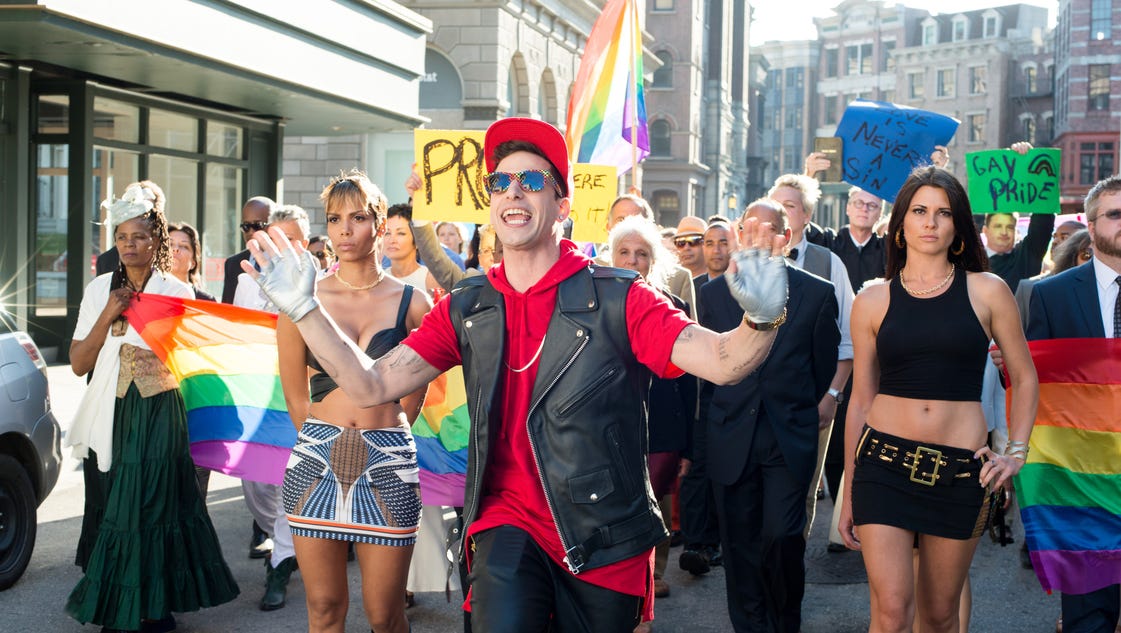




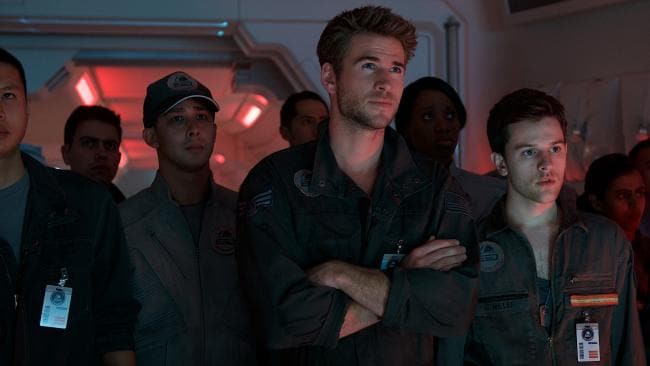

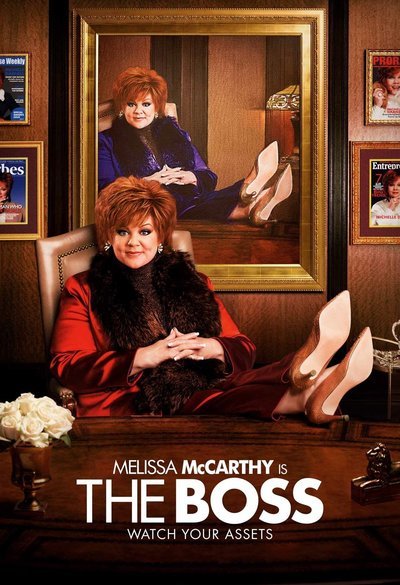






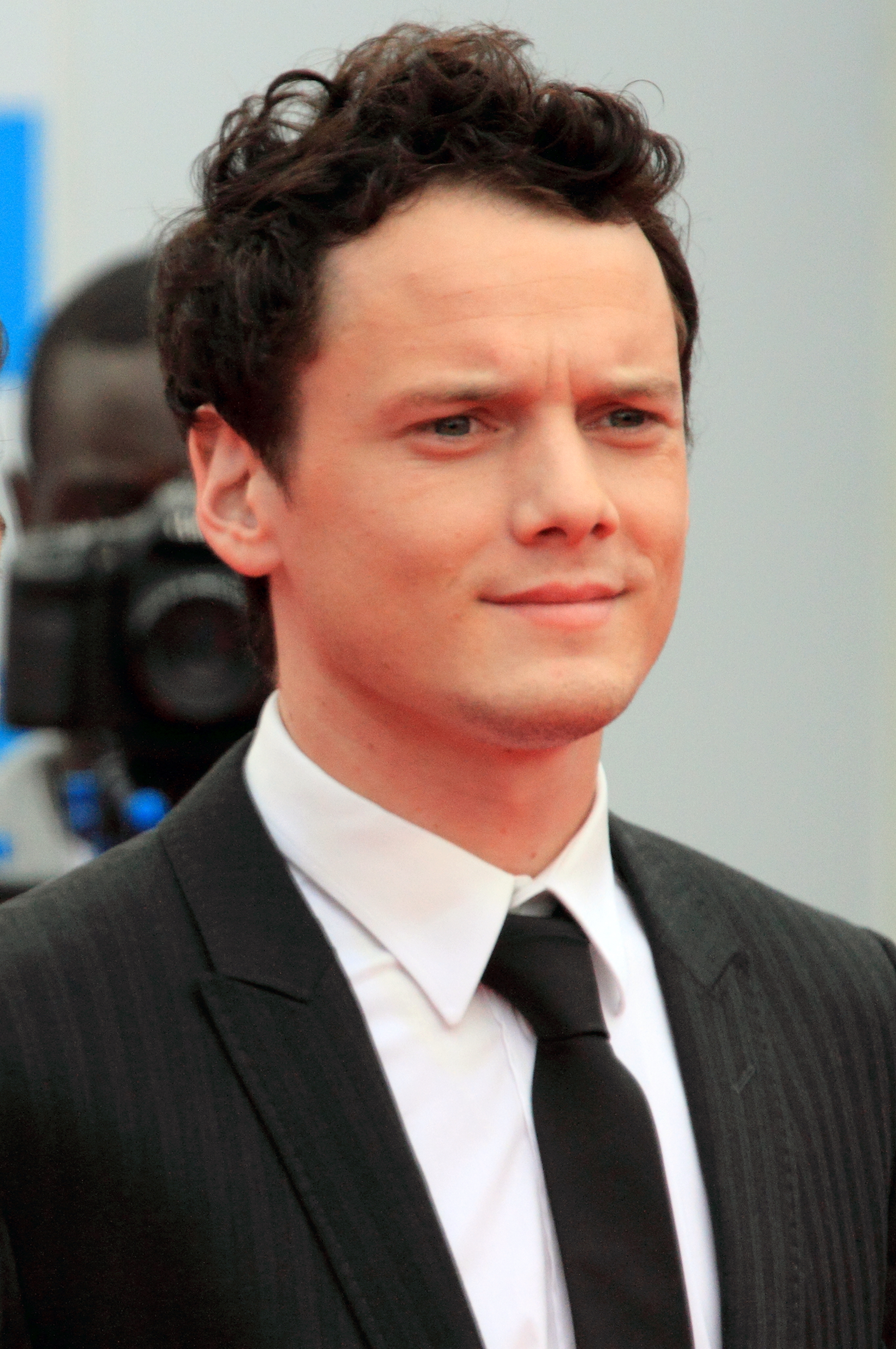







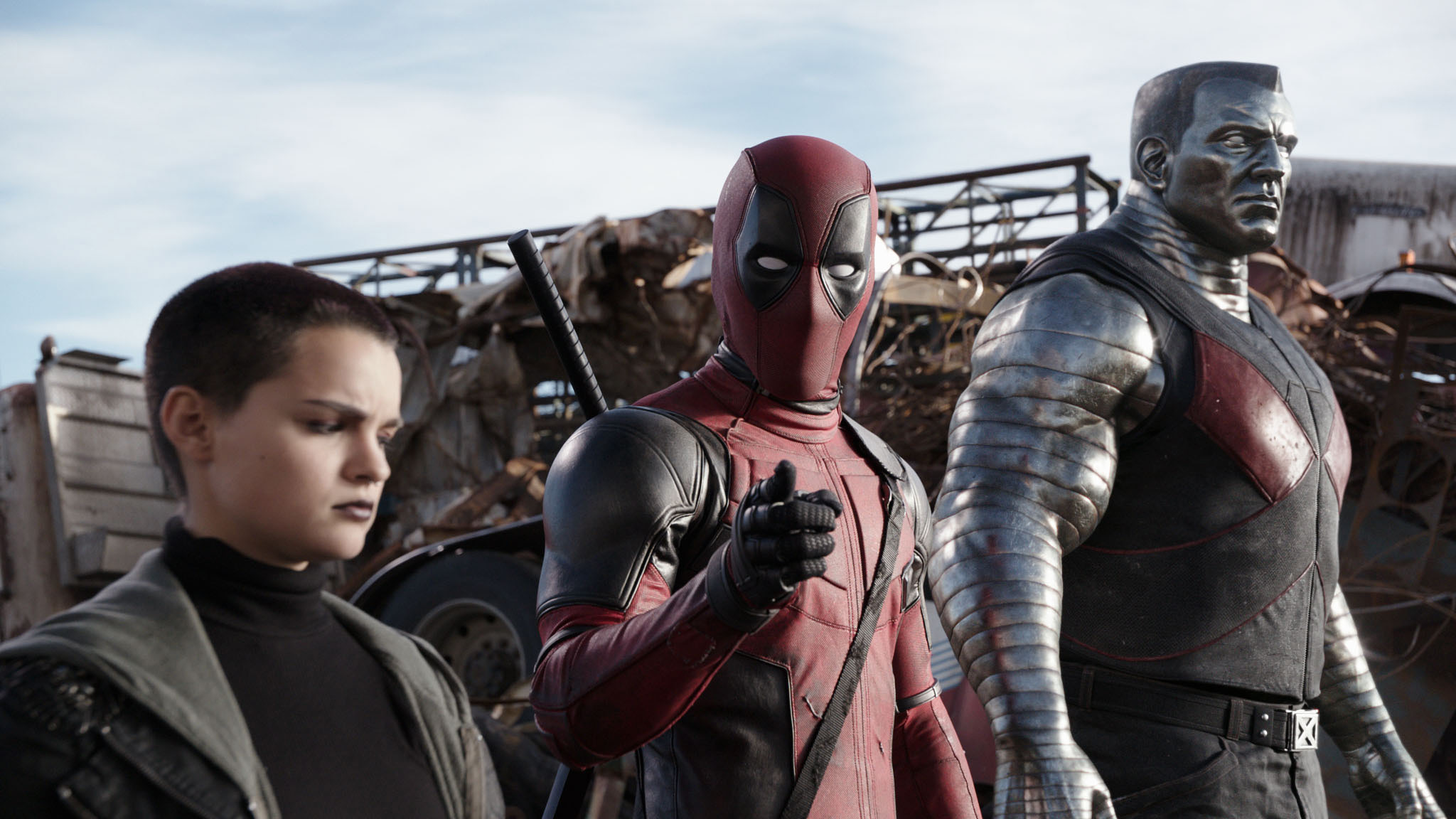

_poster.jpg)


